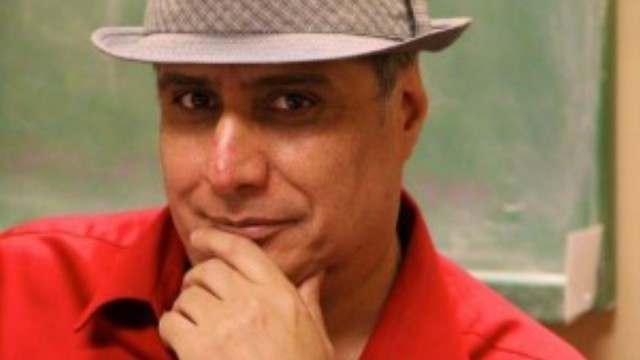
Photo of Mostafa Azizi shared by the International Campaign for Human Rights in Iran, and used with permission.
This post first appeared on iranhumanrights.org and is published here in collaboration with the International Campaign for Human Rights in Iran.
Branch 15 of Tehran Revolutionary Court has sentenced Mostafa Azizi, a former Iranian television writer and producer imprisoned since February 1, 2015, to eight years in prison, according to his son, who spoke with the International Campaign for Human Rights in Iran.
Arash Azizi told the Campaign that his father has appealed the decision.
Mostafa Azizi was sentenced June 1 to five years in prison for “assembly and collusion against national security,” two years for “insulting the Supreme Leader,” and one year for “propaganda against the state.”
Arash Azizi also told the Campaign that his father’s lawyer has asked the court for his release on bail until the appeals court announces its final decision. “We hope they grant this request and that my father is released soon. We also hope that his verdict will be overruled by the appeals court,” he said.
Mostafa Azizi, 53, was formerly a writer and producer of television programs in Iran. He and his family emigrated to Canada in 2008. He returned to Iran in December 2014 to be close to his ailing father.
Security agents arrested him on January 2, 2015, and transferred him to the IRGC’s Ward 2-A at Evin Prison, where he stayed under interrogation for a year. He was then transferred to Ward 8 of Evin Prison, where he remains. He suffers from diabetes, heart disease, and rheumatism.
A source close to him told the Campaign in April 2015 that if he had thought he would be arrested, he would have never returned to Iran. “He is an artist, not a political activist. He is an artist who wrote his analysis of the social and political situation in places like his Facebook page, but he did not intend to break the law or insult anyone.”
Dozens of Iranian expatriates who have traveled to Iran, following assurances by President Hassan Rouhani regarding their safe passage, have been arrested, interrogated, prevented from leaving by having their passports confiscated, and, in many instances, imprisoned upon their return, due to the peaceful expression of views or lifestyles with which the government does not agree.



